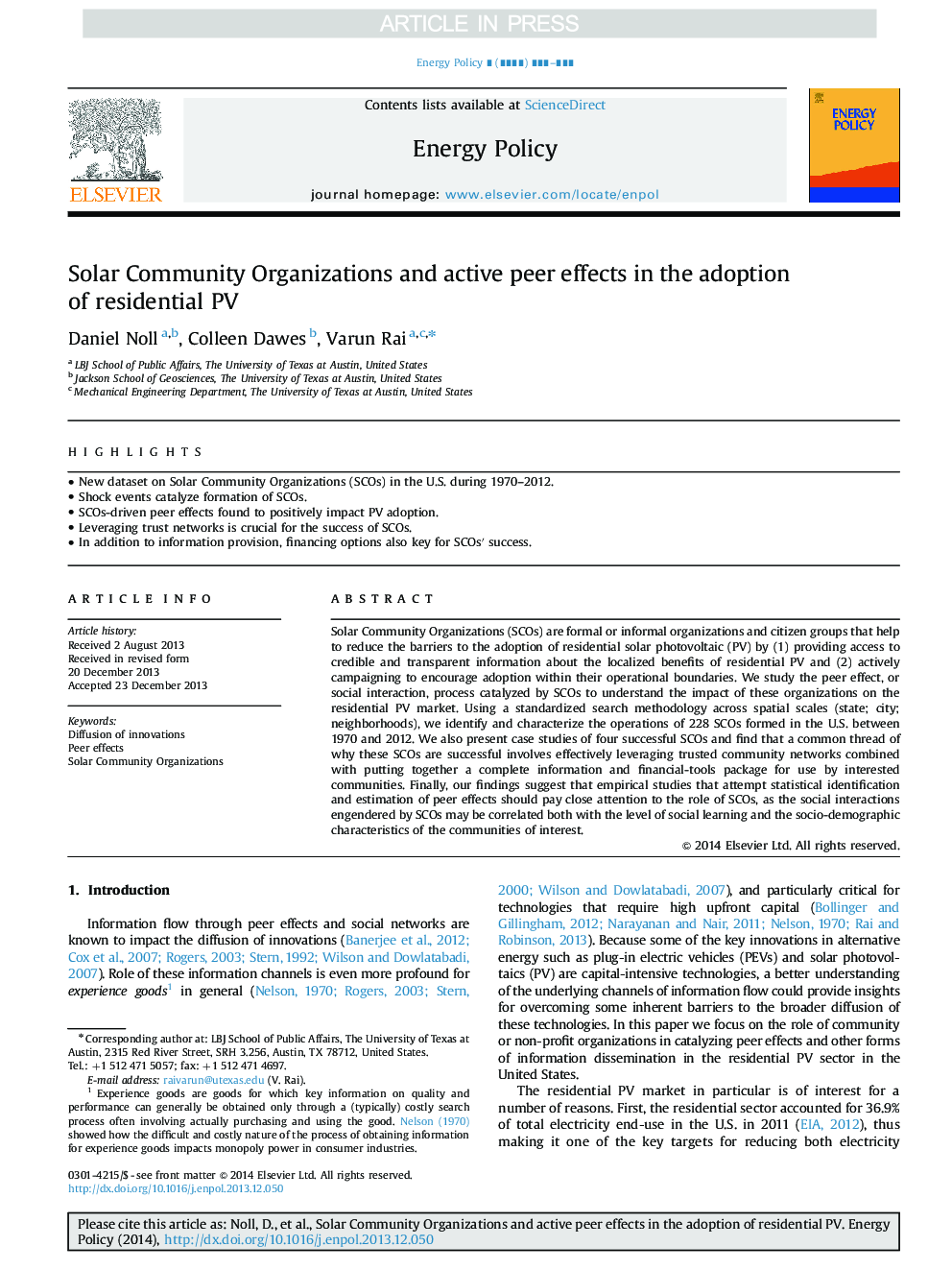| Article ID | Journal | Published Year | Pages | File Type |
|---|---|---|---|---|
| 7402338 | Energy Policy | 2014 | 14 Pages |
Abstract
Solar Community Organizations (SCOs) are formal or informal organizations and citizen groups that help to reduce the barriers to the adoption of residential solar photovoltaic (PV) by (1) providing access to credible and transparent information about the localized benefits of residential PV and (2) actively campaigning to encourage adoption within their operational boundaries. We study the peer effect, or social interaction, process catalyzed by SCOs to understand the impact of these organizations on the residential PV market. Using a standardized search methodology across spatial scales (state; city; neighborhoods), we identify and characterize the operations of 228 SCOs formed in the U.S. between 1970 and 2012. We also present case studies of four successful SCOs and find that a common thread of why these SCOs are successful involves effectively leveraging trusted community networks combined with putting together a complete information and financial-tools package for use by interested communities. Finally, our findings suggest that empirical studies that attempt statistical identification and estimation of peer effects should pay close attention to the role of SCOs, as the social interactions engendered by SCOs may be correlated both with the level of social learning and the socio-demographic characteristics of the communities of interest.
Keywords
Related Topics
Physical Sciences and Engineering
Energy
Energy Engineering and Power Technology
Authors
Daniel Noll, Colleen Dawes, Varun Rai,
